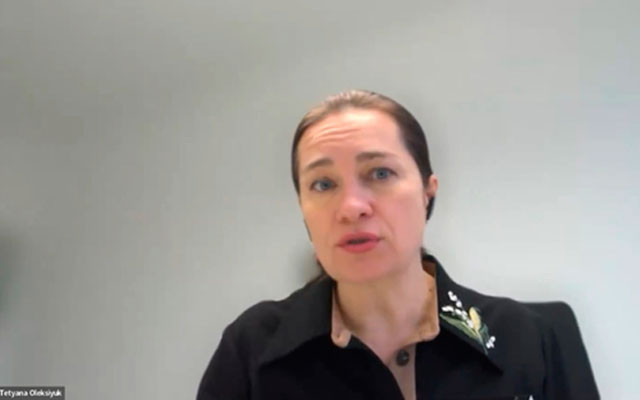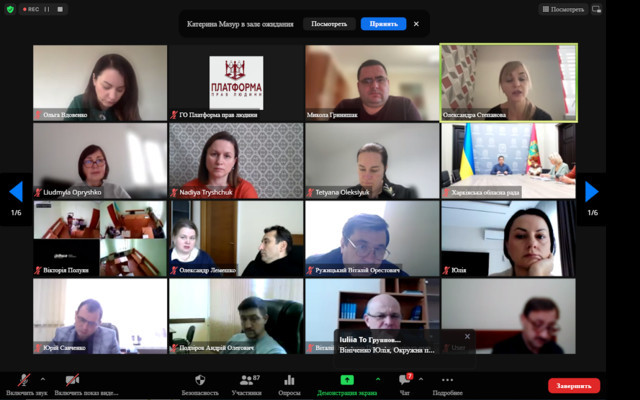
Experts and lawyers analyzed why access to public information is denied



Access to public information is a legal instrument that should become a tool for building trust between the public and the authorities. Therefore, requesters and administrators should make more efforts to motivate their requests and responses to them, especially when it comes to refusing to provide information.
This opinion was expressed by Lyudmyla Opryshko, Chairman of the UNBA Committee on Media and Advertising Law, during the roundtable «Human Rights in the Digital Dimension» organized by the Human Rights Platform NGO with the support of the American Bar Association's Rule of Law Initiative (ABA ROLI).
During the event, the final report «War in the Digital Dimension and Human Rights» was presented. The report covers information about what happened in the digital dimension between February 24 and April 30, 2022. Experts analyzed whether the state paid sufficient attention to human rights protection when it imposed restrictions on freedom of expression, collected personal data, and restricted access to public information and the Internet in general.
L. Opryshko noted that the most common motivation for refusing to provide public information is that the three-part test is not being conducted or martial law has been introduced. In her opinion, this particular marker is extremely alarming for society.
«In times of war, the right to access public information often becomes a right to life. This is especially acute when there is no information about evacuation corridors, work shelters, etc., - emphasized Chairman of the UNBA Committee. - Access to information should become a tool for building trust. We will never be able to establish trust between the government and society, to build a balance between the right to access information and the right to restrict access to information, if the authorities do not properly motivate their decisions. The public will not understand why there is a need to restrict access. And the refusal to conduct the three-part test or to motivate the refusal by the existence of martial law is a kind of refusal to explain their actions», - the lawyer is convinced.
The event was also attended by Tetyana Oleksiyuk, a member of the Council of the UNBA Committee on Media and Advertising Law. She noted that in ensuring the digital rights of citizens, attention should be paid to the publication of public information on the official websites of public authorities.
«The monitoring of the state of information rights in 2022 and 2023 revealed a rather low level of disclosure of such information, although only the minimum requirements for disclosure were assessed, namely: the availability on official websites of the texts of legal acts related to the legal regime of martial law, socially important information (on military threats, evacuation routes, humanitarian aid and shelter points), as well as the navigability and relevance of the published public information», - said T. Oleksiyuk.
The lawyer added that this is the area that requires significant efforts, and progress in this area will certainly affect the digital rights of citizens.
© 2025 Unba.org.ua Всі права захищені
"Національна Асоціація Адвокатів України". Передрук та інше використання матеріалів, що розміщені на даному веб-сайті дозволяється за умови посилання на джерело. Інтернет-видання та засоби масової інформації можуть використовувати матеріали сайту, розміщувати відео з офіційного веб-сайту Національної Асоціації Адвокатів України на власних веб-сторінках, за умови гіперпосилання на офіційний веб-сайт Національної Асоціації Адвокатів України. Заборонено передрук та використання матеріалів, у яких міститься посилання на інші інтернет-видання та засоби масової інформації. Матеріали позначені міткою "Реклама", публікуються на правах реклами.